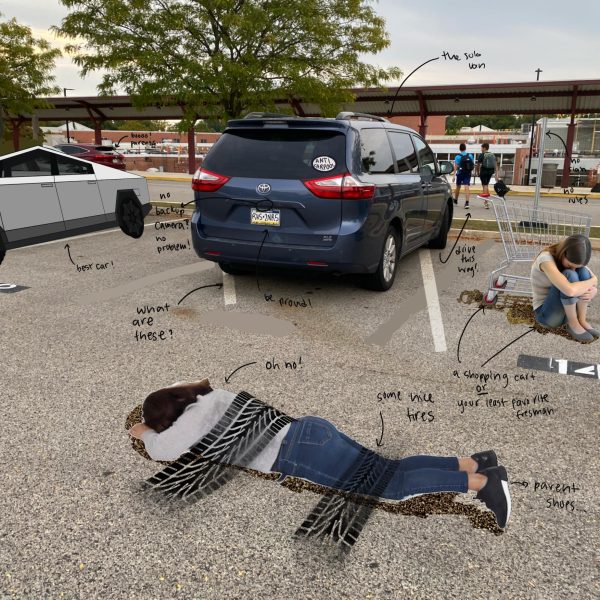Reviewing the TikTok Ban and its Implications

September 29, 2020
TikTok was removed from the app stores by the American government on September 20, 2020, by President Donald Trump. A Chinese company named ByteDance is the current owner of TikTok, but the app must be sold to an American company. Otherwise, TikTok might be completely blocked in America. Looking forward, if the app does not get any buyers, it may be banned on November 12th, 2020.
America’s consideration of the ban of TikTok stems from the current conflict of American and Chinese relations. The history of American and Chinese relations have been complicated, stemming from conflict during the early 20th century. In 1972, Richard Nixon and the Chinese president, Mao Zedong, were able to create an alliance that would unify the two countries. Now both countries, led by Donald Trump and Xi Jinping, have broken this almost fifty-year-old alliance for their respective, personal gain. Both leaders aspire for certain gains that would help them get leverage over the other country.
The relationship between Donald Trump and Xi Jinping began to go south around March 2020, right around the time when the COVID-19 outbreak began rapidly spreading from China into the United States. Trump and his cabinet members blamed Xi Jinping and China for spreading COVID-19 into America. However, it is likely that all could have been prevented if America had strict regulations to stop the spread of COVID-19 before it got out of hand. America has 6.8 million total coronavirus cases, and counting; China only has 85,269 cases, 41st in the world, despite being the epicenter of the pandemic just six months ago.
Chinese-American tensions grew when China demanded that the US pay two billion dollars to the United Nations to assist the world with COVID-19, which has not happened. The United States later blamed China for reacting slowly to the pandemic, and Mike Pompeo, the United States Secretary of State, accused the Wuhan Institute of Virology of leaking the virus into the public. Throughout all of this, each side began boycotting certain products to ruin each other’s already struggling economies; one of these products is the popular Chinese social media app TikTok.
The app really took the world by storm. The app Vine had a format similar to TikTok, but while Vine eventually died out in popularity, and shut down, TikTok doesn’t seem to be withering out. While the short-video-concept of TikTok is similar to Vine, TikTok seemed to be more innovative and popular. TikTok actually originated from Musical.ly, which was another app that involved lip singing to popular songs, but it never reached the popularity of the former.
Although I never created a TikTok account, I still see references to it in my daily life. TikTok quickly began expanding its horizons, allowing anyone to show off their dancing, cooking, musical skills, or other talents. The app’s large and supportive community is able to spread past its bounds of TikTok, and now, even as I scroll through Instagram or Youtube, I see videos that originate from TikTok. Some people are even popular enough to make a living on TikTok; not directly, but through earning sponsors from their TikTok fame, and selling their own merchandise. This is the life that most novice TikTokers dream to have, however, it has caused some people to live their lives just to receive attention, colloquially known as “internet clout,” which could have positive and negative repercussions for the individual.
As a result of its potential negative influences on the lives of some, critics of TikTok support the ban. While most videos on TikTok abide by the guidelines, there are some videos, or even worse, challenges, that encourage bad behavior or involve material that could be insensitive to other people. Obviously, the creators of such videos must take full responsibility for their actions, but part of the problem actually lies in the company itself. The negative videos that are being posted quickly gain publicity and can influence tons of people that watch to also endanger the safety of their lives and others, just for a few clicks on their videos. Even if the hashtag and the related videos are only up for a couple of months, those couple of months, are enough to encourage such bad behaviors. Even if TikTok removes these videos eventually, the app needs to be more responsive in giving consequences to those who break the Terms of Service, which includes rules against posting content that is “deliberately designed to provoke or antagonize people,” and “material that would constitute, encourage, or provide instructions for a criminal offense, dangerous activities or self-harm.”
Regardless of the Terms of Service, TikTok’s users, mostly teenagers, continue to make harmful and dangerous content for “internet clout”. Sadly, there are a lot more of these challenges than there should be, and TikTok needs to be able to delete videos and disable challenges within hours of these video’s appearances.
Youtuber D’Angelo Wallace, for example, has posted videos about a handful of such challenges that have escalated to the point in which authorities have been called and children have been fined and punished. The “Take the Penny Challenge,” for instance, in which someone lips a penny between a phone charger and an electrical outlet, in order to create sparks, is obviously very dangerous. Even if no one gets hurt, such an action is considered arson, as people are intentionally trying to start fires, which can lead to legal trouble.
Another one of these challenges is called the “Cha-Cha Slide Challenge,” which doesn’t seem that bad, since the name of the challenge comes from a dance move in which you basically just slide to the left and the right. However, this TikTok challenge takes it up a notch by doing this in the middle of the road while driving, leading drivers to purposefully swerve their cars. You would think that being old enough to possess a driver’s license would at least make you mature enough to make better decisions. There are still a handful more of these challenges from D’Angelo Wallace that make us question whether our future is really in good hands.
TikTok overall is a social media app that promotes creativity among its users, but its enforcement of policies that are clearly violations of the app’s Terms of Service evidently aren’t as effective as they could be. Even though the only social media app I use is Instagram, I can tell Instagram is a lot better at monitoring content. Even just a couple of hours after a questionable post is made, the post might be disabled, forcing viewers to first read the viewer’s discretion that might be associated with the post, or the post might even be deleted. Sometimes, even comments that don’t seem to be offensive will be deleted, which can be annoying at times. Personally, I think it is smarter for Instagram to err on the side of caution.
Even if President Donald Trump only wants to ban TikTok because of the conflict with China, the ban certainly affects generation Z more than it affects China, and because this decision is so close to the presidential election, this active generation that is “woke” and aiming for reform might actually vote Trump out. On the other hand, supporters of the TikTok ban could certainly argue that the app is not being strict enough and neglecting attention towards issues that they have complete control over. Whatever the case may be, TikTok has already been removed from the on September 20th, and whether this ban becomes permanent on November 12th remains to be seen.






